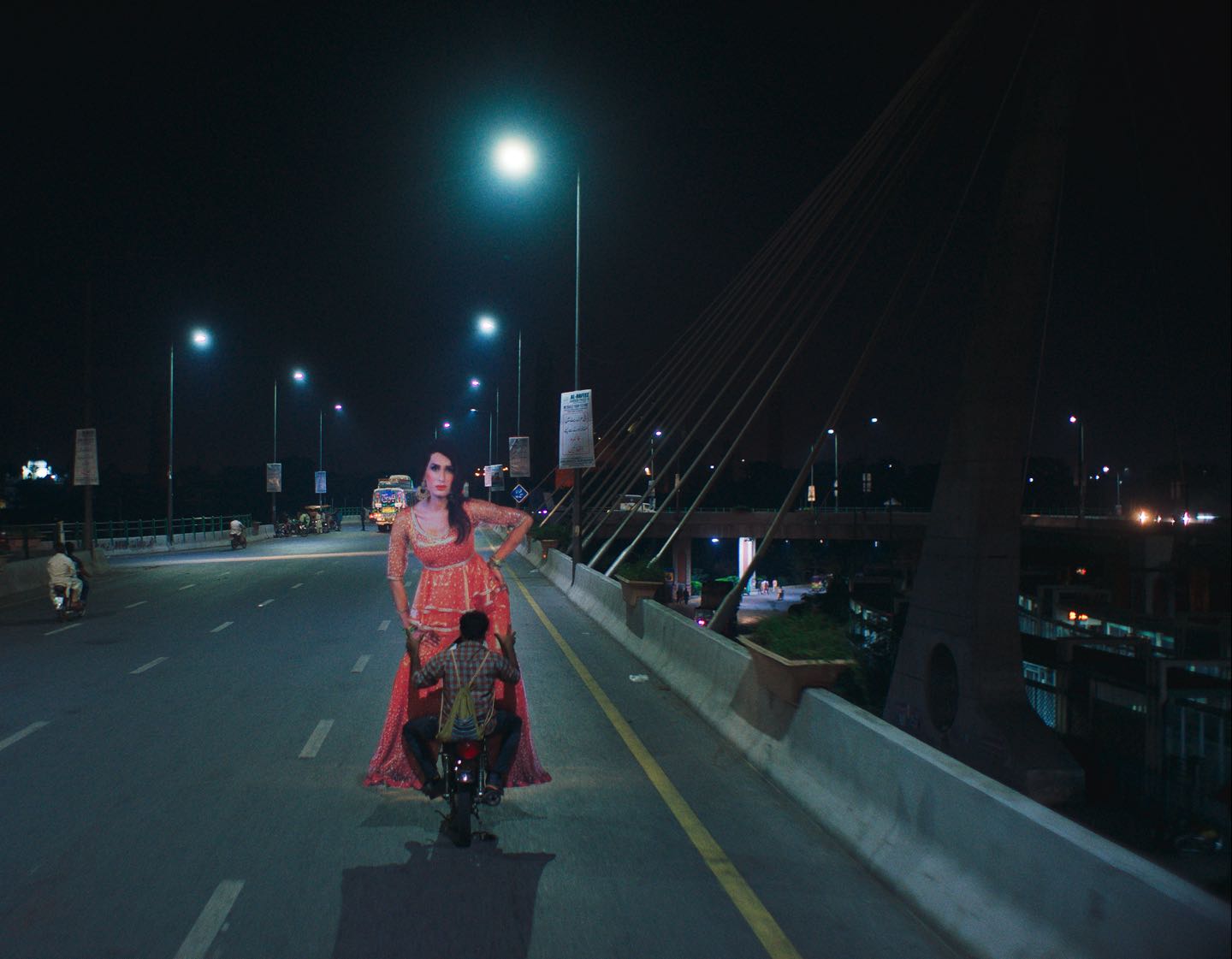
There’s plenty to laud about director Saim Sadiq’s first feature Joyland. It’s the first Pakistani movie to screen at the Cannes Film Festival, and be shortlisted for Best International Feature at the Oscars. But beyond its accolades, Joyland is a humanistic exploration of desire, relationships, sexuality. Through its tale of a man who becomes infatuated with a transgender dancer, the film shows how established social conventions can suffocate freedom in family life and beyond.
Sadiq chooses to revolve Joyland around a multigenerational family who lives under one roof—and the film’s story benefits as a result. This focus on a family allows viewers to compare and contrast how societal expectations and gender norms plague and constrict each family member in distinct yet complementary ways.
Joyland’s primary protagonist is Haider, a man who we see initially helping with housework because he’s unemployed. Haider’s father is the household’s patriarch, and gives orders as he sees fit. In one scene, the patriarch makes Haider slaughter a goat—but the meek and unsure Haider can’t bring himself to do so. Instead, it’s Haider’s wife Mumtaz who gets the job done instead. In fact, during Haider’s unemployment, it’s Mumtaz who provides for the family.

This situation changes when Haider finally gets a job, and the family forces Mumtaz to quit hers and stay home, much to her frustration. As Joyland hints through its opening scene depicting the birth of the family’s fourth female baby—a disappointment, given their preference for sons—each family member has a role to play, and a woman’s role is to produce heirs. On the surface, Haider’s return to employment would indicate a return to this “natural order” — but that is not the case. Unbeknownst to his family, Haider’s job is as a backup dancer at a burlesque-like theater. To make matters more complicated, he becomes smitten with a transgender dancer named Biba, who subverts gender roles and societal obligations.
Careful pairings and contrasts between characters help move Joyland beyond the usual formulae of “forbidden love stories.” While Haider might be the primary protagonist, director Sadiq spends ample time reflecting Biba’s perspective, and showing her confidence as a visceral foil to Haider’s crippling uncertainty. Mumtaz’s struggles also get appropriate airtime, and culminate in one of the film’s most dramatic moments.

Despite Joyland’s weighty subject matter, Sadiq and cinematographer Joe Saade still manage to make the film gentle, warm, and even comedic at times. Viewers see Joyland’s characters from a variety of camera angles—lying down, from above, or side by side—through close-ups, as if invited for an intimate close observation. Long shots and a 4:3 framing ratio complement these choices to remind us of each characters’ feelings of isolation and repression, respectively. Body language by the characters accentuates these various perspectives, helping create a balance between tension and joy.
Through these techniques, instead of placing judgements on Joyland’s individual characters, Sadiq allows us viewers to simply observe and contemplate the consequences of their decisions. Often, those decisions lead to bittersweet endings, thanks to the constraints that society creates, and expectations carried forth across generations. Joyland is a befitting title for the film—Sadiq’s characters are all searching for joy in some form, yet still have a long way to go in reaching that promised land.
• • •
Joyland (Urdu: جوائے لینڈ)—Pakistan. Dialog in Urdu. Directed by Saim Sadiq. First released at the Cannes Film Festival May 23, 2022 with Pakistani premiere on November 18, 2022. Running time 2hr 12 mins. Starring Ali Junejo, Rasti Farooq, Alina Khan, Salmaan Peerzada, Sohail Sameer, Sarwat Gilani.
